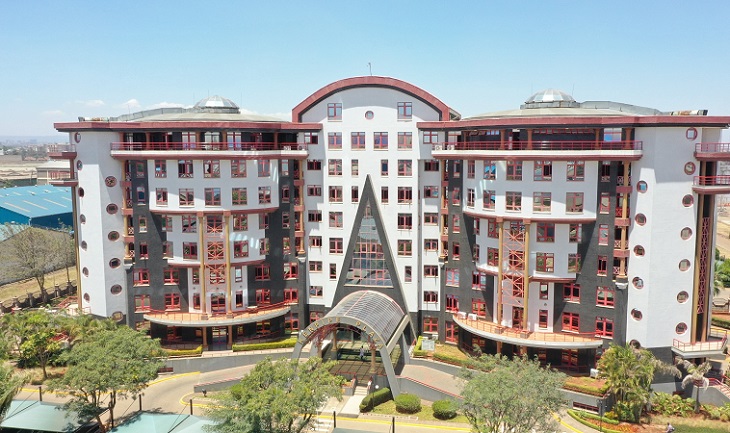The Kenya Pipeline Company (KPC), established in 1973, has been instrumental in shaping Kenya’s energy infrastructure and bolstering the East African petroleum supply chain. As a state corporation under the Ministry of Energy and Petroleum, KPC’s primary mandate is to transport, store, and distribute petroleum products efficiently and safely across Kenya and to neighboring countries..
KPC’s primary mission is to provide an efficient, reliable, safe, and cost-effective means of transporting petroleum products from Mombasa to the hinterland.
To achieve this mission, KPC has constructed an extensive pipeline network, storage, and loading facilities dedicated to the transportation, storage, and distribution of these products. The current infrastructure includes 1,342 kilometers of pipeline, capable of handling approximately 14 billion liters of petroleum products annually.
Related Content: Don’t Let Go Before Trying Your Hand In These 7 Investment Opportunities In Kenya
KPC was created following feasibility studies that identified a pipeline system as the most cost-effective and reliable method for transporting petroleum products from the coastal city of Mombasa to Kenya’s hinterland.
The company’s first major project was the construction of a 450 km, 14-inch diameter pipeline from Mombasa to Nairobi, completed in 1978. This development significantly reduced the reliance on road transport for fuel distribution.
By 1994, KPC had extended its network with an additional 446 km of 8/6-inch diameter pipeline from Nairobi to Western Kenya, reaching towns like Nakuru, Eldoret, and Kisumu. This expansion enhanced fuel accessibility across the country.
KPC has constructed an extensive pipeline network, storage, and loading facilities dedicated to the transportation, storage, and distribution of these products. The current infrastructure includes 1,342 kilometers of pipeline, capable of handling approximately 14 billion liters of petroleum products annually.
In response to increasing demand and the need for more efficient fuel transportation, KPC undertook several key projects:
-
2011: Commissioned a 325 km, 14-inch diameter parallel pipeline from Nairobi to Eldoret, boosting capacity and reliability.
-
2016: Completed a 121 km, 10-inch diameter pipeline from Sinendet to Kisumu, enhancing fuel supply to Western Kenya.
-
2018: Launched a 450 km, 20-inch diameter parallel pipeline from Mombasa to Nairobi, significantly increasing throughput capacity.
Related Content: Top 10 Investment Opportunities In Bungoma County
These projects expanded KPC’s pipeline network to approximately 1,342 km, enabling the handling of about 14 billion liters of petroleum products annually. The infrastructure supports not only Kenya but also neighboring countries like Uganda, Rwanda, Burundi, Eastern DRC, South Sudan, and Northern Tanzania .
KPC has demonstrated robust financial performance, with a pre-tax profit of KES 10 billion ($77.13 million) reported for the 2023–24 financial year—a 32% increase from the previous year. Revenue rose by 15% to KES 35.4 billion ($273.04 million), driven by higher petroleum throughput and favorable exchange rates. Total throughput volumes increased by 6% to 9.1 million cubic meters, with exports growing by 12% to 4.7 million cubic meters.
KPC Board Chairman Mrs. Faith Bett–Boinett has credited the outstanding performance to enhanced operational efficiency. “Our strategic outlook has evolved with the revision of our Corporate Strategic Plan to Vision 2025. This forward-thinking approach ensures that KPC remains aligned with the dynamic market environment and continues to fulfill its strategic imperatives. Our recent acquisition of ISO Integrated Management System (IMS) underscores our commitment to maintain the highest standards of operational excellence and compliance with international benchmarks” she said.
Strategically, KPC finalized the acquisition of Kenya Petroleum Refineries Limited (KPRL), enhancing the country’s petroleum storage capacity and reinforcing its role as a regional oil and gas hub. The company has also invested in advanced technologies like leak detection systems and the Supervisory Control and Data Acquisition (SCADA) system to improve operational efficiency.
Looking ahead, the Kenyan government is considering listing KPC on the Nairobi Securities Exchange (NSE) through an initial public offering (IPO), aiming to attract private investment and reduce reliance on public funding.
There is no doubt that KPC plays a vital role in the East African energy sector, supplying petroleum products to landlocked countries. In June 2024, the company strengthened ties with Rwanda through a landmark forum attended by Rwandan government ministers. This collaboration aims to ensure a steady supply of petroleum products, crucial for Rwanda’s economic development.
Related Content: Unlocking Investment Opportunities For Kenyan Richest Investors
Established in 2016, the KPC Foundation focuses on uplifting educational infrastructure across Kenya. The foundation has invested over KES 200 million in constructing more than 142 classrooms, laboratories, dormitories, and administration blocks nationwide. Notable projects include:
-
Four classrooms at Masangora Girls’ Secondary School in Migori County.
-
Four classrooms at Cheptuiyet Girls High School in Kericho County.
-
An administration block at Nachu Primary School in Kiambu County.
Additionally, the foundation supports students through scholarships, particularly benefiting those with disabilities, enabling them to pursue education without financial burdens.
Related Content: Should I Borrow Money To Make An Investment?

